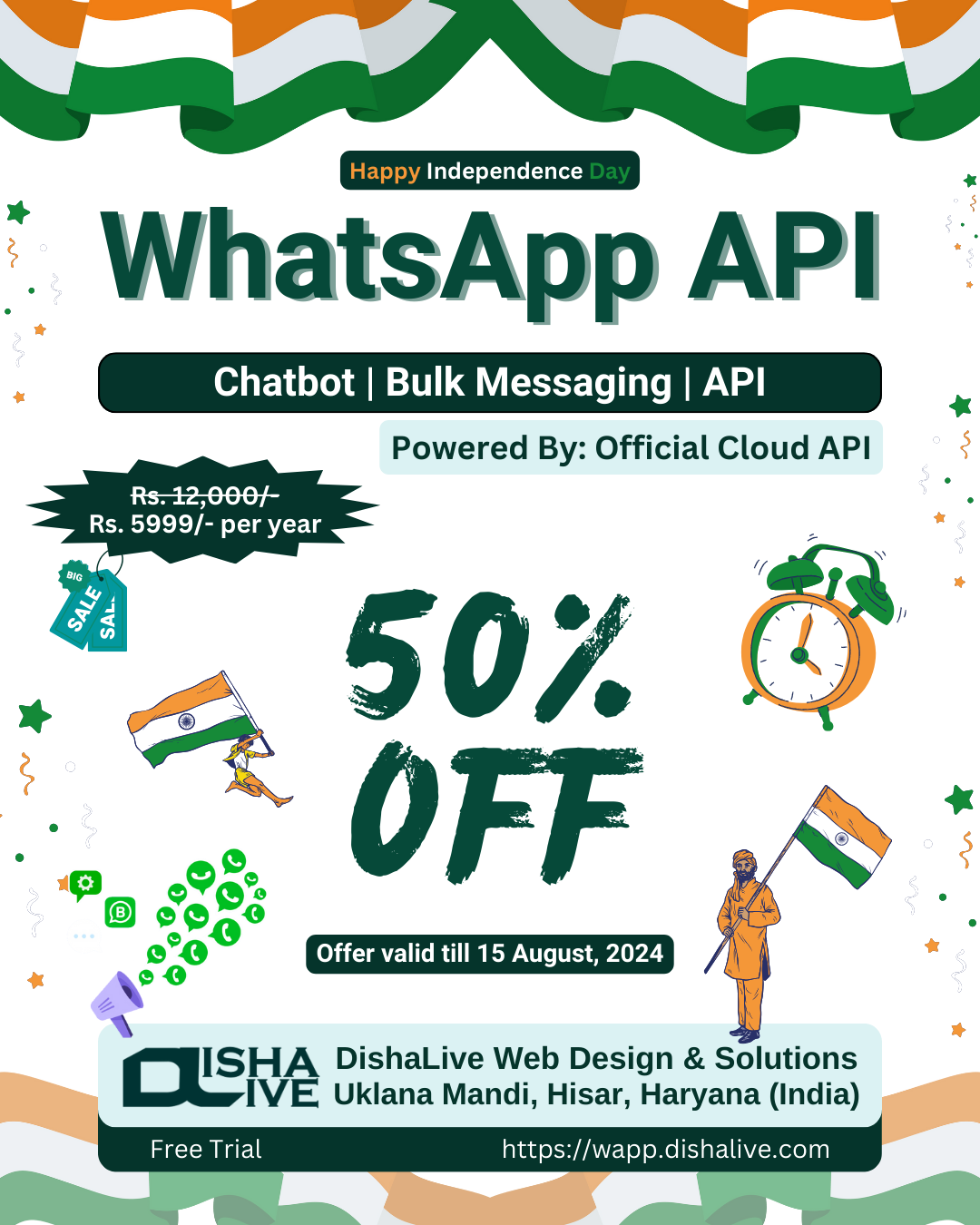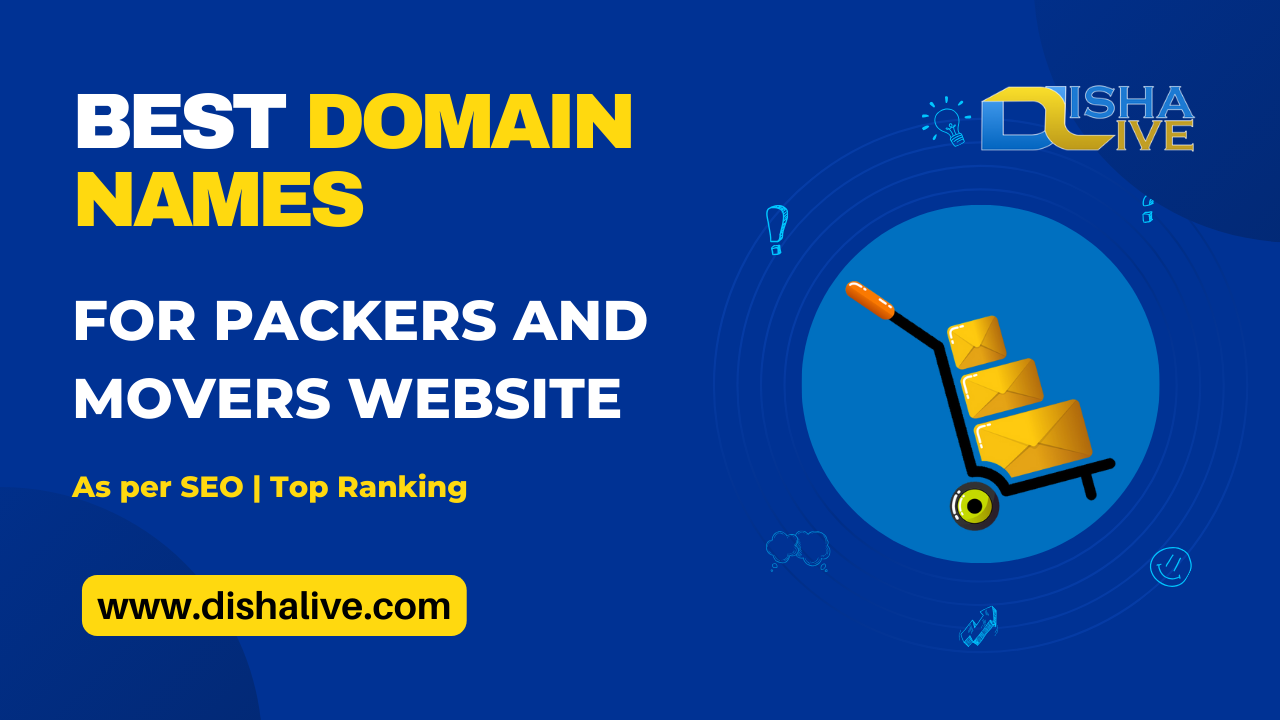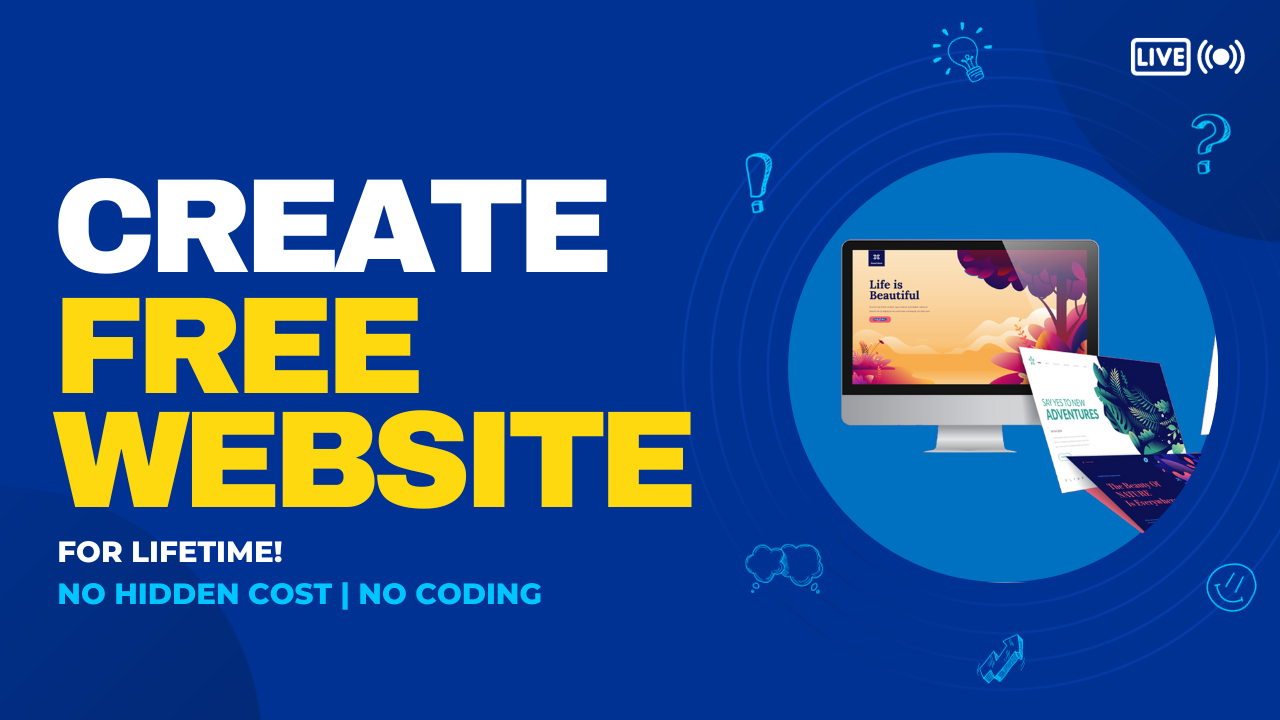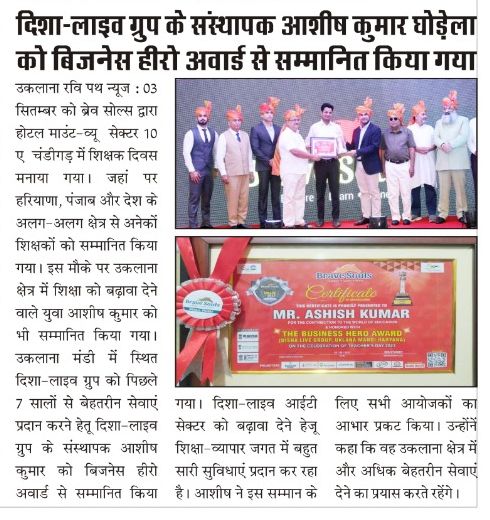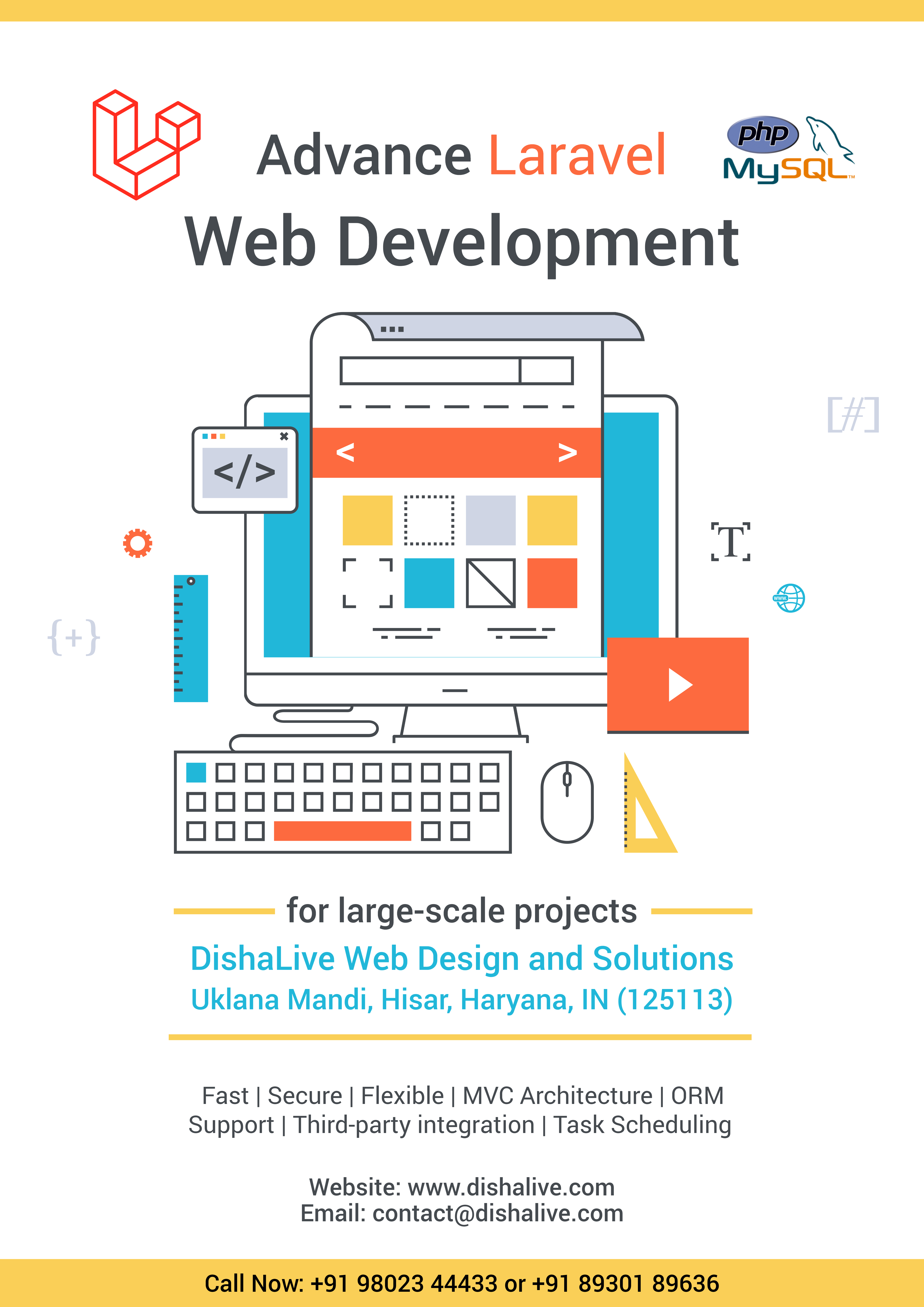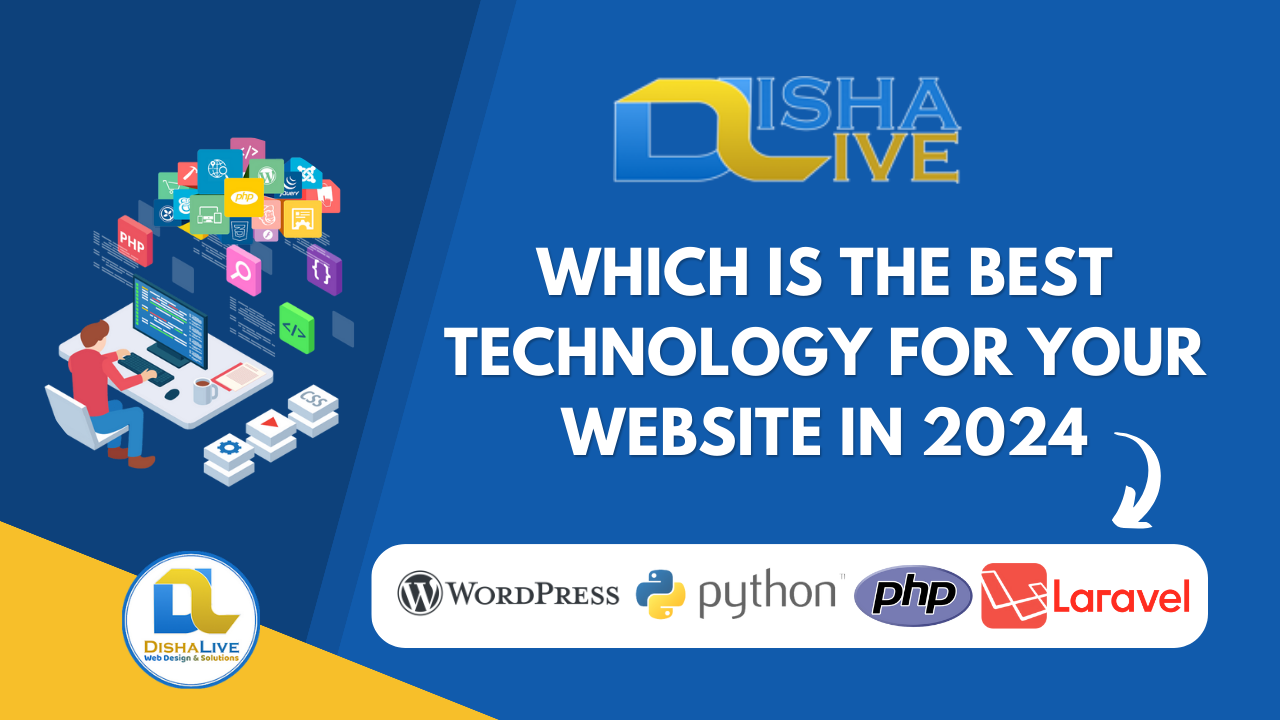
- useful-tricks-and-how-to
- 2023-10-07 09:44:57
- 2.5k
- 1.2k
Which is the best technology for your website in 2024
Introduction
In the massive and ever-evolving panorama of net improvement, selecting the right generation stack is crucial to the fulfillment of your undertaking. Four distinguished contenders in this area are WordPress, PHP, Laravel, and Python. Each of these technologies serves distinct purposes and possesses its personal set of blessings and downsides. In this comprehensive comparison, we can explore these alternatives to help you make a knowledgeable decision for your web development endeavors
WordPress
WordPress is a widely popular content control machine (CMS) acknowledged for its simplicity and ease of use. It's mainly nicely perfect for bloggers, small groups, and those who want to create content material-focused websites without delving too deeply into coding. Here's extra on WordPress:
WordPress, at its center, is a CMS designed for creating and coping with websites without problems. Its person-friendly interface allows people with little to no technical heritage to install a website speedy. You can choose from an extensive range of themes to customize the look and feel of your website online. Additionally, WordPress's significant plugin library provides answers for numerous functionalities like search engine marketing optimization, e-commerce, contact bureaucracy, and more.
However, WordPress does have its limitations. While it is first-rate for trustworthy websites, greater complicated initiatives may additionally require big custom coding or the use of additional plugins, which could introduce protection and overall performance worries. Scaling WordPress for high-site visitor's websites can also be difficult, and normal security updates are important due to their recognition among hackers.
Key Features of WordPress
WordPress gives a variety of functions that make it an appealing preference for a various person base:
User-Friendly Interface: WordPress is famous for its intuitive and user-friendly dashboard, which empowers customers with little to no technical understanding to create and control their websites efficiently. The interface is designed to be handy to a wide target market, which includes bloggers, small enterprise proprietors, and non-income.
Themes and Customization: WordPress provides a widespread library of issues allowing users to customize their website's appearance and feel without difficulty. Themes cater to various industries and design preferences, making it simple to create a visually attractive and particular internet site.
Plugin Ecosystem: Perhaps certainly one of WordPress's most vast blessings is its tremendous plugin ecosystem. Users can pick from hundreds of plugins that enlarge the platform's capability. Whether you want SEO optimization, e-trade abilities, contact bureaucracy, social media integration, or some other function, there is probably a plugin available to fulfill your needs.
Content Management: WordPress excels in content control, presenting an easy yet effective editor for developing and publishing articles, images, motion pictures, and different media. Its hierarchical system of pages and posts makes organizing content material trustworthy.
Search engine optimization-Friendly: Search engine optimization (search engine marketing) is crucial for an internet site's visibility. WordPress offers diverse search engine optimization plugins, such as Yoast SEO and All in One search engine optimization Pack, that simplify optimization responsibilities. These plugins offer recommendations and gear to assist your website in ranking well in search engine effects.
Community and Support: WordPress boasts a big and lively community of customers, builders, designers, and fanatics. This community contributes to the platform's continuous improvement and offers a wealth of resources, consisting of boards, documentation, tutorials, and troubleshooting help.
Suitability for Different Users: WordPress caters to an extensive range of customers, and its versatility is one of its maximum sizeable strengths:
Bloggers: WordPress's roots lie in blogging, and it remains an exquisite desire for bloggers. Its user-pleasant editor, scheduling capabilities, and tremendous library of running a blog-associated plugin make it a perfect platform for writers and content creators.
Small Businesses: Small corporations frequently lack the assets for custom internet site improvement. WordPress presents a low-cost solution, permitting them to establish a web presence speedy. With the right issues and plugins, small organizations can create expert websites with e-commerce functionality.
Non-Profits and Organizations: Non-earnings corporations and network organizations can gain from WordPress's price effectiveness and simplicity of use. They can use WordPress to percentage their venture, occasions, and updates with a vast target audience.
E-commerce: With plugins like WooCommerce, WordPress is a possible choice for e-commerce websites. Store proprietors can easily manipulate products, orders, and payments, making it a versatile choice for online retail.
Portfolio and Personal Websites: Artists, photographers, writers, and specialists searching to showcase their paintings can create beautiful portfolio websites with WordPress. The platform's flexibility permits creative and personalized designs.
Challenges and Limitations
Despite its many benefits, WordPress isn't always without its challenges:
Customization Complexity: While issues and plugins provide massive flexibility, complex customizations may also require coding capabilities. Advanced users might find themselves enhancing code or in search of the services of builders for particular requirements.
Performance Concerns: Out-of-the-box, WordPress websites may be slower than different answers. This can impact a person's experience and SEO ratings. Performance optimization, consisting of caching and image optimization, is frequently vital.
Security Vulnerabilities: Due to its giant use, WordPress sites are popular objectives for hackers. Regular safety updates and proactive monitoring are important to maintain websites steady. Scalability Challenges: Scaling WordPress for high-visitor websites may be difficult. As visitors increase, it could require widespread investment in infrastructure and optimization efforts.
Plugin Dependency: Over-reliance on plugins can result in compatibility problems, security vulnerabilities, and performance troubles. It's crucial to choose and manage plugins carefully.
Pros: | Cons: |
User-Friendly: WordPress is renowned for its user-friendly interface,making it accessible to both beginners and experienced developers. | Limited Customization: While plugins offer flexibility, complex customizations may require coding skills. |
Extensive Plugin Ecosystem: Its vast plugin repository allows you to extend functionality and customize your website effortlessly. | Performance Concerns: Out-of-the-box, WordPress can be slower than other solutions, necessitating optimization efforts. |
SEO-Friendly: WordPress offers various SEO plugins that simplify optimization tasks, helping your site rank well in search engines. | Security Vulnerabilities: Popular targets for hackers, WordPress sites require regular security updates and monitoring. |
Strong Community Support: A large community of users and developers provides ample resources, tutorials, and troubleshooting assistance. | Scalability Challenges: Scaling WordPress for high-traffic websites can be challenging and may require significant investment. |
Versatile Content Management: Ideal for blogs, e-commerce, portfolios,and more, WordPress is adaptable to various website types. |
In conclusion, WordPress stands as a versatile and accessible platform for a wide range of users, from bloggers to small businesses and non-profits. Its user-friendly interface, extensive plugin ecosystem, and strong community support make it a compelling choice. However, it's vital to be aware of its limitations, such as customization complexity and security concerns, and take proactive steps to address these challenges. Ultimately, WordPress's suitability depends on your project's specific needs, and when used judiciously, it can be a powerful tool for creating and managing websites.
PHP
PHP (Hypertext Preprocessor) is a server-side scripting language extensively used in internet improvement. It forms the spine of many internet applications and websites.
Let's discover PHP further: PHP is a versatile scripting language that allows developers to create dynamic internet pages and applications. It has sizable library support and compatibility with diverse databases and net servers, making it a powerful tool for internet developers. PHP is an open-source language, which means that it is value-effective and accessible for tasks of all sizes.
However, PHP does include its set of demanding situations. The open-source nature of PHP can bring about inconsistent code pleasant and security issues. While PHP's object-orientated talents have progressed, they now need to be in shape the ones of more modern languages. Ensuring the safety of PHP programs requires more attempts, and scaling for high traffic can emerge as complicated.
A Brief History of PHP
PHP was created with the aid of Rasmus Lerdorf in 1994 as a hard and fast of Common Gateway Interface (CGI) binaries written in C. It becomes to start with designed to track visits to his online resume. Over time, PHP developed into a server-side scripting language with the ability to create dynamic net pages.
In 1997, PHP 3 was released, introducing functions like assist for databases, shape handling, and improved performance. With the discharge of PHP four in 2000, the language became extra mature and won sizable adoption. It brought the Zend Engine, which substantially advanced PHP's overall performance and competencies.
PHP five, launched in 2004, marked a huge milestone by introducing the Zend Engine II and support for object-oriented programming (OOP) with functions like lessons and exceptions. It similarly solidified PHP's function as a robust web development language.
In 2014, PHP five was succeeded via PHP 7, which added substantial overall performance improvements and delivered functions along with scalar kind declarations and go-back type declarations. PHP 7.4 and subsequent variations have persevered to enhance the language's talents and performance.
Key Features of PHP
Server-Side Scripting: PHP is ordinarily used at the server facet to generate dynamic web content material. It allows builders to embed PHP code within HTML, making it easy to create dynamic internet pages.
Extensive Library Support: PHP boasts a massive standard library with features and modules for numerous obligations, from report dealing to database connectivity. This sizable library simplifies not unusual programming duties.
Database Compatibility: PHP helps numerous database structures, such as MySQL, PostgreSQL, SQLite, and Oracle. It affords dedicated extensions and APIs for seamless interaction with databases.
Cross-Platform Compatibility: PHP is platform-agnostic and may run on numerous running structures, together with Windows, Linux, macOS, and more. Open Source: PHP is open-source, making it available to builders at no cost. Its open nature has fostered a large and energetic network that contributes to its development.
Relevance in Contemporary Web Development:
PHP continues to hold a widespread place in contemporary internet development for numerous reasons:
Wide Adoption: PHP powers a good-sized portion of websites and net packages on the net. Many famous platforms and content control systems (CMS), along with WordPress, Joomla, and Drupal, depend upon PHP.
Versatility: PHP's versatility lets developers create a huge variety of net programs, from simple websites to complex e-commerce structures and web-primarily based software.
Performance Improvements: PHP 7 and subsequent variations have brought big overall performance enhancements, making PHP-primarily based programs greater green and faster.
Strong Community: PHP continues a colorful community of builders, which contributes to its growth, documentation, and the creation of open-source initiatives and frameworks.
The ecosystem of Frameworks: PHP has a rich environment of frameworks like Laravel, Symfony, and CodeIgniter that streamline application development, sell fine practices, and enhance security.
Challenges and Limitations:
While PHP offers many benefits, it isn't always without its challenges and obstacles:
Inconsistent Code Quality: PHP's open-source nature can result in variations in code great, making it vital for builders to comply with great practices to make certain maintainable and secure code.
Security Concerns: PHP packages may be vulnerable to security threats if not nicely configured and secured. Developers want to be vigilant approximately making use of security satisfactory practices and maintaining libraries and components updated.
Object-Oriented Learning Curve: While PHP has embraced object-oriented programming, the transition to OOP may be challenging for builders who are acquainted with procedural programming.
Competition from Other Languages: PHP faces opposition from newer languages like Python, Ruby, and JavaScript, which provide current functions and ecosystems that attract builders.
Scaling Challenges: Scaling PHP applications for excessive site visitors can become complex, requiring cautious structure layout and probably distributed structures.
Pros: | Cons: |
Server-Side Scripting: PHP is a robust server-side scripting language widely used for web development. | Inconsistent Code Quality: The open-source nature can lead to variations in code quality and security. |
Extensive Library Support: A vast library of PHP functions and frameworks simplifies development. | Limited Object-Oriented Features: PHP's object-oriented capabilities have improved, but they may not match those of modern frameworks. |
Compatibility: It is compatible with various databases and web servers, providing versatility. | Lack of Built-in Security: PHP does not inherently provide the same level of security features as some other languages. |
Cost-Effective: PHP is open-source and cost-effective for small to large projects. | Scalability Challenges: Scaling PHP applications can become complex for very high-traffic sites. |
Community and Documentation: A large community and extensive documentation make learning and troubleshooting easier. |
In the end, PHP remains an applicable and effective language in net development. Its rich history, significant library assistance, and huge adoption retain to make it a treasured device for creating dynamic web applications. However, developers must be aware of its demanding situations, which include security issues and the want for fine coding practices. PHP's endured evolution and the increase of its atmosphere via frameworks make certain that it'll maintain to play a vast function in the web improvement panorama for the foreseeable future.
Laravel
Laravel is a PHP internet application framework recognized for its fashionable syntax and robust feature set. It simplifies internet improvement by offering gear and conventions for commonplace responsibilities. Here's a better look at Laravel:
Laravel is cherished by means of builders for its smooth and expressive syntax, which makes code smooth to put in writing and hold. It comes with a strong set of capabilities, inclusive of authentication, routing, and caching, that streamline development. The Artisan command-line device simplifies repetitive obligations and generates boilerplate code, saving time and effort. Laravel's Eloquent ORM (Object-Relational Mapping) makes database interactions efficient and intuitive.
However, Laravel won't be the first-rate choice for novices because of its advanced functions and the learning curve related to them. Some of its features, even as handy, can introduce overall performance overhead. Rapid development can cause backward compatibility problems with older Laravel variations, and coping with middleware can emerge as complicated as applications grow in size and complexity.
The Evolution of Laravel:
Laravel was created via Taylor Otwell and was first released in 2011. Otwell sought to build a framework that could deal with commonplace pain points in internet improvement whilst presenting a fun development experience. Since its inception, Laravel has developed through a couple of variations, introducing new functions, enhancements, and superior performance.
Key Features of Laravel:
Laravel offers a rich feature set that simplifies and accelerates web development:
Expressive Syntax: Laravel's syntax is designed to be clean and expressive, allowing developers to write code that is both elegant and readable. This emphasis on code aesthetics contributes to the framework's appeal.
Authentication and Authorization: Laravel provides built-in authentication and authorization systems that simplify user management, role-based access control, and user registration and login.
Routing: The framework offers a simple and expressive way to define application routes, making it easy to map URLs to controller actions and create SEO-friendly URLs.
Database Migration: Laravel's database migration system enables developers to version-control database schemas and apply changes incrementally, which is crucial for collaborative development and deployment.
Eloquent ORM: Laravel's Eloquent ORM simplifies database interactions by providing an intuitive and expressive way to work with databases. It enables developers to define database tables as models, reducing the need for complex SQL queries.
Artisan Command-Line Tool: Artisan, Laravel's command-line tool, automates repetitive tasks, generates boilerplate code, and simplifies various aspects of application management, such as database migrations, seeders, and creating custom commands.
Blade Templating Engine: Laravel's Blade templating engine offers a straightforward and expressive syntax for creating templates, layouts, and views. It supports template inheritance, loops, and conditionals, and includes, enhancing code reusability and maintainability.
Middleware: Middleware in Laravel allows for the execution of code before and after HTTP requests enter application routes. It's a powerful tool for implementing cross-cutting concerns like authentication, logging, and security.
Caching: Laravel provides a unified API for various caching backends, making it simple to implement caching for improved application performance.
Testing: Laravel supports PHPUnit for unit and feature testing, facilitating test-driven development (TDD) practices. The framework includes testing helpers and assertions for thorough application testing.
Why Developers Love Laravel:
Laravel's appeal to developers can be attributed to several factors:
Clean and Expressive Code: Laravel encourages developers to write clean, readable, and expressive code, which enhances code quality and maintainability.
Rapid Development: With Laravel's extensive feature set and Artisan's automation capabilities, developers can create fully functional web applications quickly, reducing development time and effort.
Community and Ecosystem: Laravel has a vibrant and supportive community that contributes to the framework's growth. The ecosystem includes packages, extensions, and community-contributed resources that extend Laravel's functionality.
Eloquent ORM: Developers appreciate Eloquent's simplicity and efficiency for database interactions, reducing the need for writing complex SQL queries.
Active Development: The Laravel team actively maintains and updates the framework, ensuring that it remains relevant and competitive in the ever-evolving field of web development.
Challenges and Considerations:
While Laravel offers numerous advantages, it's essential to be aware of potential challenges and considerations:
Learning Curve: Laravel's advanced features and expressive syntax may pose a learning curve for beginners or those new to PHP web development. However, this curve is often seen as an investment in gaining valuable skills.
Performance Overhead: Some features in Laravel, while convenient, can introduce a performance overhead. Developers should be mindful of performance optimization techniques to mitigate this.
Version Compatibility: Rapid development and frequent updates can result in backward compatibility issues when migrating between Laravel versions. Careful planning and testing are required during upgrades.
Middleware Complexity: As applications grow in size and complexity, managing middleware can become intricate. Proper middleware design and organization are necessary to maintain code clarity.
Laravel in Contemporary Web Development:
Laravel remains an outstanding participant in modern-day internet improvement. Its mixture of smooth syntax, comprehensive functions, and a supportive network guarantees its relevance. Laravel has determined a sturdy foothold in various application domains, along with content material management structures (CMS), e-trade systems, net applications, and APIs.
The Laravel environment has accelerated to encompass diverse packages and equipment that similarly enhance its abilities. Laravel Nova, as an example, is an administration panel for managing application information, while Laravel Mix simplifies asset compilation and management. Additionally, Laravel Dusk offers a stylish answer for browser automation testing.
Pros: | Cons: |
Elegant Syntax: Laravel offers a clean and expressive syntax, making code easy to write and maintain. | Learning Curve: Laravel's advanced features may pose a learning curve for beginners. |
Robust Framework: It includes numerous features like authentication, routing, and caching, simplifying development. | Performance Overhead: Some features, while convenient, can introduce performance overhead. |
Artisan CLI: Laravel's command-line tool streamlines repetitive tasks and generates boilerplate code. | Frequent Updates: Rapid development can lead to backward compatibility issues with older Laravel versions. |
Eloquent ORM: An efficient and intuitive ORM simplifies database interactions. | Middleware Complexity: Managing middleware can become complex as applications grow in size and complexity. |
Active Community: A passionate community provides extensive documentation, packages, and support. |
In the end, Laravel remains a compelling preference for net developers seeking an elegant, green, and function-rich PHP framework. Its expressive syntax, great function set, and supportive network contribute to its recognition. While it is able to not be satisfactory and healthy for all tasks, Laravel shines in eventualities in which fast improvement, code excellence, and maintainability are paramount. With its lively improvement and ongoing improvements, Laravel is in all likelihood to stay a dominant pressure within the international of PHP internet improvement for future years.
Python
Python is a flexible, excessive-stage programming language used for diverse purposes, including internet improvement. The Django framework is one of the popular choices for building internet packages with Python. Here's more approximately Python and Django: Python's versatility extends to web development, thank you in component to the Django framework. Python is known for its clean, readable code and is frequently selected for projects wherein maintainability is a priority. Django, a batteries-blanketed framework, simplifies web development with the aid of providing pre-built components for authentication, routing, templating, and more. Despite its many strengths, Python does have its downsides. Python's interpreted nature can result in slower execution speeds in comparison to compiled languages. The Global Interpreter Lock (GIL) in Python can restrict multi-threaded overall performance. Django's getting-to-know curve can be steep for novices, mainly those new to Python. Additionally, Python internet programs may have fewer website hosting options compared to PHP.
Clean and Readable Code: Python's syntax is thought for its simplicity and clarity. It emphasizes easy and concise code, making it easier for developers to jot down and maintain code. This awareness of code clarity is specifically treasured for big and complex net programs.
Versatility: Python is a multipurpose language that may be used for web development, facts evaluation, device mastering, scripting, and more. Its versatility makes it a treasured tool in the developer's toolkit.
Rich Standard Library: Python boasts a complete general library that includes modules for managing various obligations, from file I/O to records manipulation. This full-size library simplifies many not unusual programming responsibilities in internet improvement.
Community and Ecosystem: Python has a thriving and active network of builders and lovers. The Python Package Index (PyPI) hosts lots of open-supply programs and libraries, making it smooth to locate and integrate 1/3-birthday celebration answers into web initiatives.
Web Development Frameworks: Python offers numerous net development frameworks, with Django and Flask being the most famous. These frameworks offer pre-built additives and gear for growing net applications efficiently.
Django Framework: A Batteries-Included Web Framework Django is an excessive-stage, open-supply web framework for Python that follows the "batteries-protected" philosophy. This way Django presents a comprehensive set of tools and libraries for commonplace internet improvement obligations out of the field. Let's explore Django's capabilities and its position in internet development:
Model-View-Controller (MVC) Architecture: Django follows the Model-View-Controller (MVC) architectural pattern, which promotes a clean separation of issues in internet packages. In Django, this is frequently referred to as the Model-View-Template (MVT) pattern.
Admin Interface: Django includes an effective admin interface that allows developers to manage utility statistics without having to build custom admin panels. This characteristic is especially valuable for content material control structures (CMS) and administrative backends.
Authentication and Authorization: Django affords built-in authentication and authorization structures, making it truthful to put in force consumer registration, login, and get admission to control in internet applications. URL Routing: Django's URL routing device lets developers define URL patterns and map them to specific views, facilitating easy and organized URL systems.
Template Engine: Django comes with a template engine that enables builders to create dynamic, records-pushed HTML templates. This encourages code reusability and separation of presentation good judgment from software logic. Database Abstraction: Django consists of an Object-Relational Mapping (ORM) gadget that abstracts database interactions. Developers can paint with Python items, and Django handles the translation of those items to SQL queries, making database access intuitive and much less blunders-susceptible.
Security Features: Django emphasizes protection and offers built-in safety towards not unusual net vulnerabilities, such as SQL injection, pass-site scripting (XSS), and pass-website request forgery (CSRF).
Community and Extensions: Django has a vibrant network that contributes to the improvement of reusable apps and extensions, in addition to improving the framework's talents.
Challenges and Considerations:
While Python and Django provide numerous advantages, they come with their set of demanding situations and considerations:
Performance: Python is an interpreted language, that could bring about slower execution speeds compared to compiled languages like C. However, Django's performance may be optimized through various strategies, inclusive of caching and cargo balancing.
Global Interpreter Lock (GIL): Python's Global Interpreter Lock (GIL) can restrict multi-threaded overall performance in multi-middle environments. This constraint may additionally require builders to apply opportunity methods like multiprocessing for parallelism.
Learning Curve: Django's widespread feature set and architectural patterns may additionally pose a learning curve, particularly for beginners or builders new to Python. However, this investment in studying regularly will pay off in increased productivity and code first-class.
Hosting Options: While Python net programs may be hosted on plenty of systems, the hosting options can be extra limited as compared to PHP, which has broader assistance among net website hosting providers.
Python and Django in Contemporary Web Development:
Python and Django have carved out a sizeable niche in current internet development, particularly in initiatives wherein code clarity, maintainability, and speedy improvement are priorities. Django's batteries-blanketed method, along with Python's smooth and expressive code, make them a compelling choice for net programs, content management systems (CMS), e-commerce structures, and more.
In current years, Python's recognition has surged in records science, machine learning, and synthetic intelligence, similarly increasing its presence across various domains.
Pros: | Cons: |
Versatility: Python is a versatile language suitable for web development, scripting, machine learning, and more. | Slower Execution: Python's interpreted nature can lead to slower execution speeds compared to compiled languages. |
Strong Community: Python boasts a large and active community, ensuring ample support and resources. | GIL Limitations: Python's Global Interpreter Lock (GIL) can hinder multi-threaded performance. |
Django Framework: Django, a Python web framework, simplifies web development with its batteries-included approach. | Learning Curve: Django's learning curve may be steep for beginners, particularly those new to Python. |
Scalability: Python is capable of handling large-scale web applications with proper architecture. | Limited Hosting Options: Python web applications may have fewer hosting options compared to PHP. |
Clean Code: Python's readable and clean codebase promotes collaboration and maintainability. |
In conclusion, Python, coupled with frameworks like Django, offers a compelling opportunity for net development. Its clean syntax, versatility, and robust frameworks make it an appealing desire for builders seeking to build maintainable and function-wealthy web applications. However, builders need to be aware of overall performance issues and the getting-to-know curve related to Django, which may vary based totally on man or woman task requirements and crew knowledge.
Conclusion:
In the end, selecting the proper generation for web improvement relies upon your precise project necessities, your group's information, and your lengthy time period desires. Let's summarize the key takeaways from our contrast of WordPress, PHP, Laravel, and Python: WordPress excels in person-friendliness and versatility for content material-driven websites, however, it is able to require enormous customization for complicated projects. Its recognition and sizeable plugin surroundings make it an attractive preference for many. PHP has a strong desire for server-side scripting, offering considerable library aid and compatibility. It's cost-powerful and fits an extensive range of tasks, however, you should be aware of code quality and safety. Laravel is a stylish and strong PHP framework that streamlines web development with features like Artisan CLI and Eloquent ORM. It's best for builders searching for a cutting-edge, efficient, and expressive PHP solution. Python sticks out for its versatility, sturdy community, and the Django framework for internet improvement. It's a remarkable desire in case you prioritize smooth code, scalability, and long-term maintainability. Ultimately, the era you choose must align together with your mission's unique wishes. If you feel ease of use and an equipped-made environment, WordPress may be your go-to choice. For server-side scripting and value-effectiveness, PHP can be a reliable preference. Laravel is ideal for developers who want to work with a modern-day PHP framework, whilst Python and Django provide versatility, scalability, and smooth code for complicated initiatives. Keep in thoughts that generation trends evolve, and it is crucial to live updated with the modern-day tendencies in your selected era stack. Whichever direction you pick, thorough planning, trying out, and ongoing protection are crucial for a successful internet improvement challenge.
Choosing the appropriate technology stack for website creation is essential in today's fast-paced digital environment. We've examined some of the most well-liked choices in this article, including WordPress, PHP, Python, and Laravel. Your particular goals and objectives will ultimately determine which technology you choose. Each of these technologies has advantages and disadvantages.
WordPress is a great option for new users and small businesses looking for a quick and simple way to create an online presence thanks to its user-friendly interface and robust ecosystem of plugins. Being a server-side scripting language, PHP offers custom web applications flexibility and scalability. Python is suitable for a variety of web projects due to its adaptability and strong frameworks. The finest of both worlds are combined in Laravel, a PHP framework that provides strong tools for web development.
However, making the right choice can be challenging, especially if you're not well-versed in these technologies. That's where DishaLive Web Design and Solutions comes in.
*About DishaLive Web Design and Solutions:*
Address: 1st Floor, Radha Krishna Complex, Near Bus Stand, Uklana Mandi, Hisar, Haryana (India) - 125113
Email: [email protected]
Phone Numbers: +91 98023 44433 & +91 89301 89636
Website: http://www.dishalive.com
DishaLive is your trusted partner in the world of web development and technology. With a team of experienced professionals, we offer expert consultancy services to help you make the right decisions regarding technology selection and website development. Whether you're a startup, a small business, or a large enterprise, our tailored solutions will ensure that your online presence is both effective and efficient.
Our mission is to empower businesses with the latest technological advancements and create websites that not only meet your current needs but also scale with your future aspirations.
Reach out to us at [email protected] or call us at +91 98023 44433 & +91 89301 89636 to embark on a journey towards innovative web solutions that will set you apart in the digital landscape.
Thank you for joining us on this technology comparison journey, and we look forward to helping you achieve your online goals with DishaLive Web Design and Solutions.

